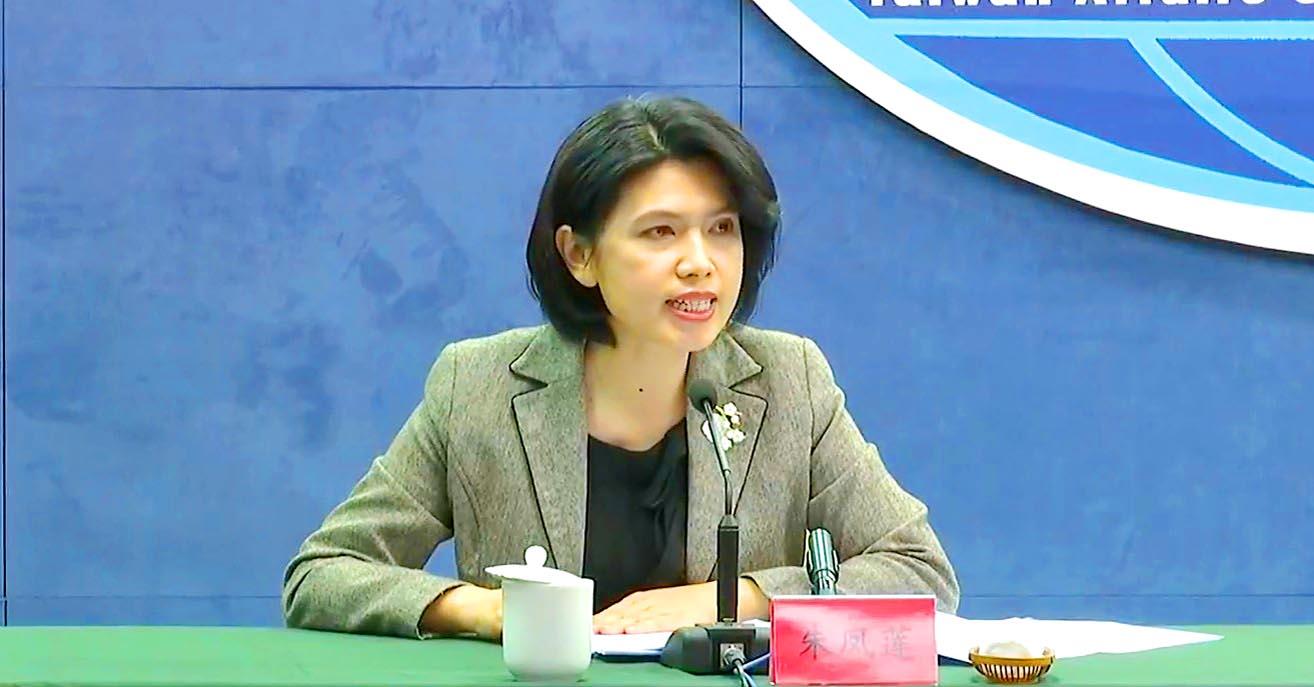The Council of Agriculture (COA) yesterday said that it has no authority to fine experts or business entities that share sensitive technologies with China, after Beijing introduced incentives to attract Taiwanese agricultural know-how and investment.
Xinhua news agency reported that China’s Taiwan Affairs Office (TAO) unveiled a policy package to incentivize Taiwanese to invest in Chinese agriculture.
Dubbed “The 22 Forestry and Agricultural Measures” by Taiwanese media, the incentives would grant Taiwanese the right to obtain land, a credit rating, subsidies and access to trade organizations for a broad swathe of agricultural activities, including forestry, and the cultivation of tea, fruit and flowers.

Photo: Chen Yu-fu, Taipei Times
COA Deputy Minister Chen Junne-jih (陳駿季) said that government regulations prohibit farmers from engaging in 409 types of farm work — including pineapple cultivation — as investment in China.
However, when asked by reporters, Chen was unable to name a person or business that had been fined by the council for breaches of the regulations.
While other government agencies have referred numerous alleged infringements to the council, Chen said that “sufficient evidence” had not been presented for the council to take action.
“We cannot take action based on a Web site or some administrative process,” Chen said.
Council personnel and academics participating in the research and development of crucial agricultural technologies must obtain a permit to visit China, he said.
During the first three years of their retirement, senior officials with knowledge of research programs must obtain a permit to travel to China, and the three-year restriction is renewable, he said.
Restrictions regarding travel to China are applied more rigorously because of differences between the two countries that are not present in Taiwan’s relations with democratic nations, he said.
The government is not planning to include China’s allies and partners in the travel restrictions, because being friendly with Beijing does not mean that they would take local product information, he said.
However, measures blocking the export of indigenous cultivars and technologies would likely be more effective at protecting Taiwan’s agricultural expertise than restrictions on people’s freedom of movement, he said.
The Mainland Affairs Council said that the incentives package was part of China’s “united front” efforts aimed at coercing Taiwan into unifying with China.
“Beijing calls them benefits for Taiwanese, but it is China that benefits,” it said.
Only a small number of Taiwanese would gain from the measure, but overall, Taiwanese agriculture would suffer, it said.
Earlier yesterday, TAO spokeswoman Zhu Fenglian (朱鳳蓮) told a news conference in Beijing that the measures would “grant equality to Taiwanese compatriots and Taiwanese enterprises.”
In 2019, China’s flower trade totaled US$620 million, including US$262 million in imports, said Jiang Jiangping (蔣建平), deputy director of the Office of Taiwan Agricultural Affairs at the Chinese Ministry of Agriculture and Rural Affairs.
Flower cultivation is an important area of cross-strait cooperation, with a good existing framework of collaboration, he said, citing Taiwanese growers’ work in the autonomous region of Guangxi.

A Chinese aircraft carrier group entered Japan’s economic waters over the weekend, before exiting to conduct drills involving fighter jets, the Japanese Ministry of Defense said yesterday. The Liaoning aircraft carrier, two missile destroyers and one fast combat supply ship sailed about 300km southwest of Japan’s easternmost island of Minamitori on Saturday, a ministry statement said. It was the first time a Chinese aircraft carrier had entered that part of Japan’s exclusive economic zone (EEZ), a ministry spokesman said. “We think the Chinese military is trying to improve its operational capability and ability to conduct operations in distant areas,” the spokesman said. China’s growing

Nine retired generals from Taiwan, Japan and the US have been invited to participate in a tabletop exercise hosted by the Taipei School of Economics and Political Science Foundation tomorrow and Wednesday that simulates a potential Chinese invasion of Taiwan in 2030, the foundation said yesterday. The five retired Taiwanese generals would include retired admiral Lee Hsi-min (李喜明), joined by retired US Navy admiral Michael Mullen and former chief of staff of the Japan Self-Defense Forces general Shigeru Iwasaki, it said. The simulation aims to offer strategic insights into regional security and peace in the Taiwan Strait, it added. Foundation chair Huang Huang-hsiung

PUBLIC WARNING: The two students had been tricked into going to Hong Kong for a ‘high-paying’ job, which sent them to a scam center in Cambodia Police warned the public not to trust job advertisements touting high pay abroad following the return of two college students over the weekend who had been trafficked and forced to work at a cyberscam center in Cambodia. The two victims, surnamed Lee (李), 18, and Lin (林), 19, were interviewed by police after landing in Taiwan on Saturday. Taichung’s Chingshui Police Precinct said in a statement yesterday that the two students are good friends, and Lin had suspended her studies after seeing the ad promising good pay to work in Hong Kong. Lee’s grandfather on Thursday reported to police that Lee had sent

BUILDUP: US General Dan Caine said Chinese military maneuvers are not routine exercises, but instead are ‘rehearsals for a forced unification’ with Taiwan China poses an increasingly aggressive threat to the US and deterring Beijing is the Pentagon’s top regional priority amid its rapid military buildup and invasion drills near Taiwan, US Secretary of Defense Pete Hegseth said on Tuesday. “Our pacing threat is communist China,” Hegseth told the US House of Representatives Appropriations Subcommittee on Defense during an oversight hearing with US General Dan Caine, chairman of the Joint Chiefs of Staff. “Beijing is preparing for war in the Indo-Pacific as part of its broader strategy to dominate that region and then the world,” Hegseth said, adding that if it succeeds, it could derail